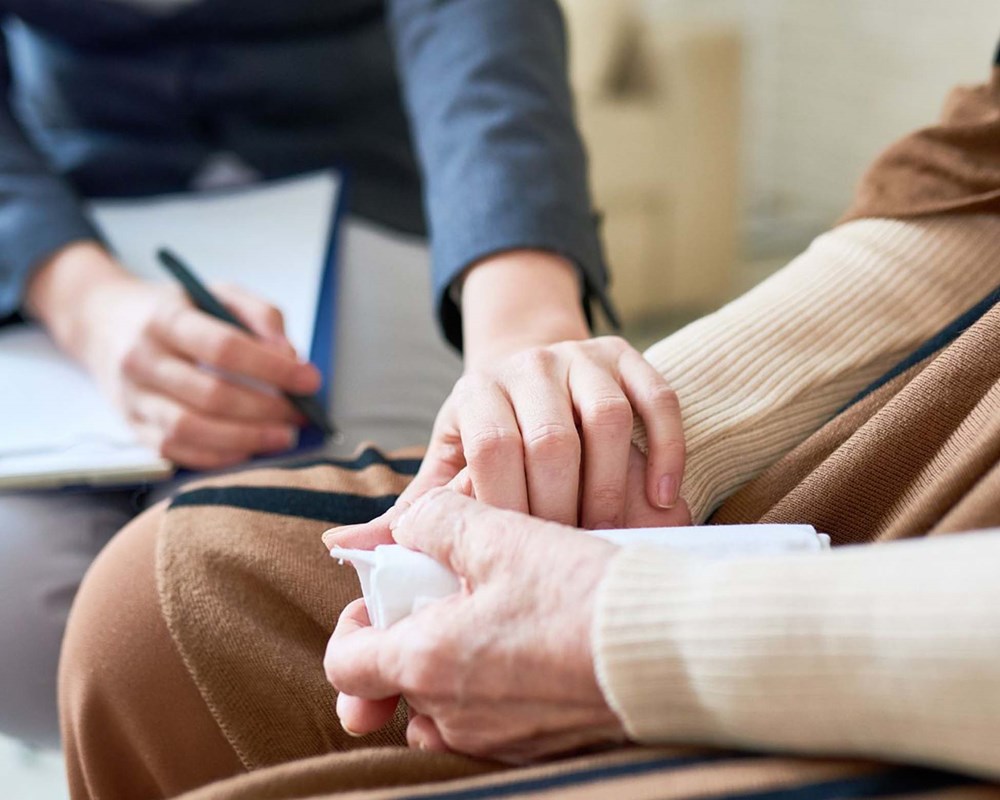
CAMH News & Stories
In the headlines or behind the scenes, CAMH stories always aim to inform, engage, and enlighten.
- Home
- CAMH News & Stories

For The Community, and With Community: How INTREPID Labs and the Black Health Alliance aim to improve smoking cessation health outcomes for Black Communities
CAMH welcomed Parliamentary Secretary to the Minister of Health, Maggie Chi, for an announcement about Canada’s Healthy Canadians and Communities Fund
About For The Community, and With Community: How INTREPID Labs and the Black Health Alliance aim to improve smoking cessation health outcomes for Black Communities
New Funding Fuels Development of First Potentially Regenerative Treatment for Multiple Sclerosis
A Canadian-led international research team, spearheaded by Dr. Fang Liu at CAMH has received nearly $800,000 US ($1,137,868 CAD) in new funding to advance a promising therapy for multiple sclerosis (MS).
About New Funding Fuels Development of First Potentially Regenerative Treatment for Multiple Sclerosis
Three simple daily habits to boost your mindfulness
On World Mindfulness Day, CAMH occupational therapist Ilan Mester shares three easy ways to reduce stress, improve focus and become more present.
About Three simple daily habits to boost your mindfulness
CAMH Pilot Program Shows Promise in Preventing Fetal Alcohol Spectrum Disorder Through School-Based Education
A new CAMH-led pilot is helping young people understand the risks of alcohol use during pregnancy and how to prevent Fetal Alcohol Spectrum Disorder (FASD)
About CAMH Pilot Program Shows Promise in Preventing Fetal Alcohol Spectrum Disorder Through School-Based Education
Canada’s Health Minister Makes First Visit to CAMH, Spotlights 9-8-8: Suicide Crisis Helpline
On September 3, the Honourable Marjorie Michel, Minister of Health, visited the Centre for Addiction and Mental Health (CAMH). The Minister was joined by Chi Nguyen, Member of Parliament for Spadina-Harbourfront.
About Canada’s Health Minister Makes First Visit to CAMH, Spotlights 9-8-8: Suicide Crisis Helpline
Hormone Therapy Delivery Method May Influence Memory After Menopause, New CAMH Study Finds
Findings support precision approaches to hormone therapy for women in midlife and beyond
About Hormone Therapy Delivery Method May Influence Memory After Menopause, New CAMH Study Finds
Restoring CAMH’s Heritage Wall
Preserving the heritage wall is an important part of CAMH’s redevelopment and our commitment to honouring the past.
About Restoring CAMH’s Heritage Wall
Equity in Action: CAMH Leaders Co-Author New Quality Improvement Framework
A new study at CAMH proposes a practical framework to help healthcare teams and organizations reduce barriers and ensure services are inclusive and just. Conducted in collaboration with leaders from the Centre for Quality Improvement and Patient Safety as well as other contributors across the Toronto Academic Health Sciences Network, this research incorporates diverse perspectives from within the sector.
About Equity in Action: CAMH Leaders Co-Author New Quality Improvement Framework
International Self Care Day
Resources to support self-care, created in collaboration with youth ambassadors
About International Self Care Day
CAMH, SickKids and GH-CCMH launches Thriving Minds, a one-stop online information hub to navigate youth mental health services
Thriving Minds, a partnership between CAMH, SickKids and GH-CCMH, launches a comprehensive website for mental health programs, services and support.
About CAMH, SickKids and GH-CCMH launches Thriving Minds, a one-stop online information hub to navigate youth mental health services

